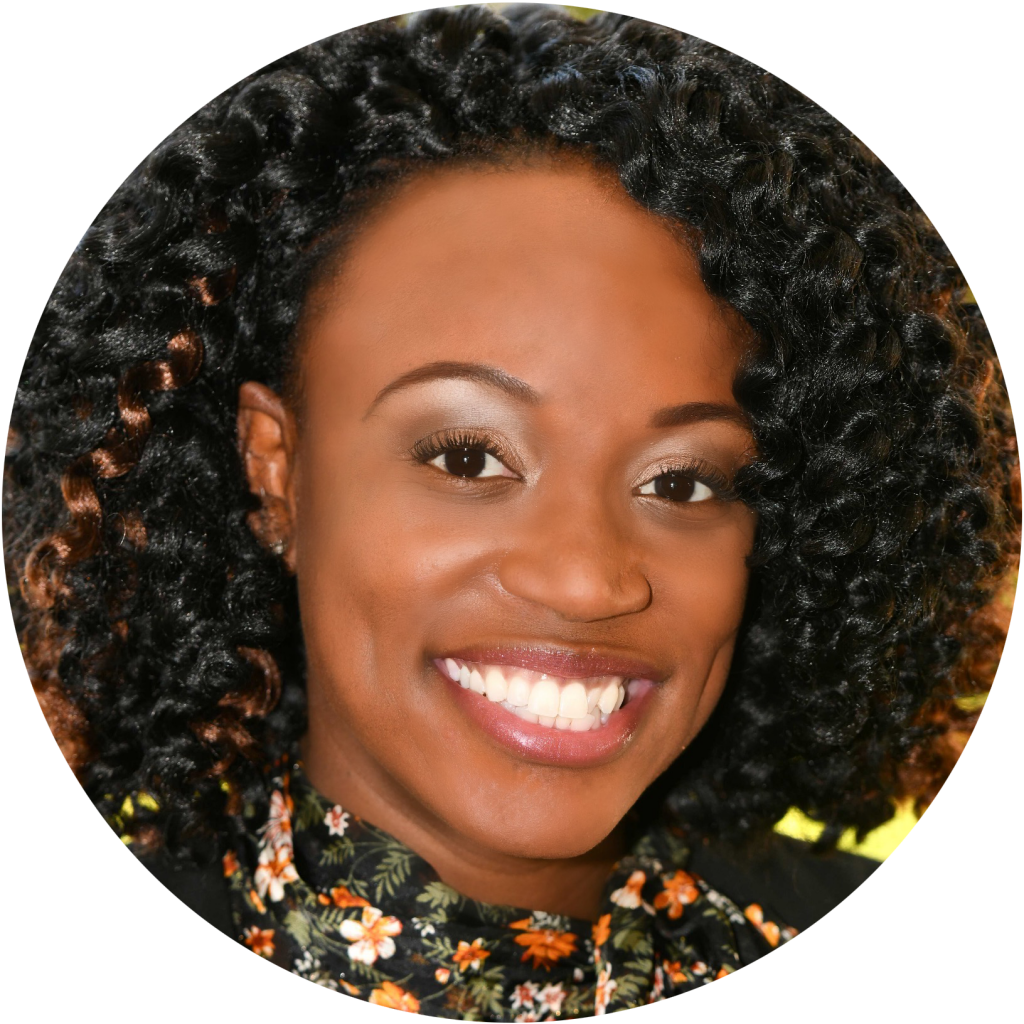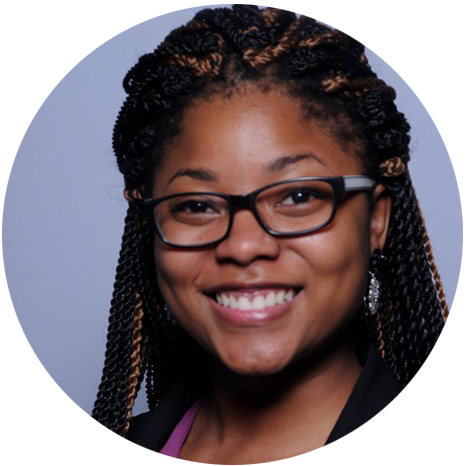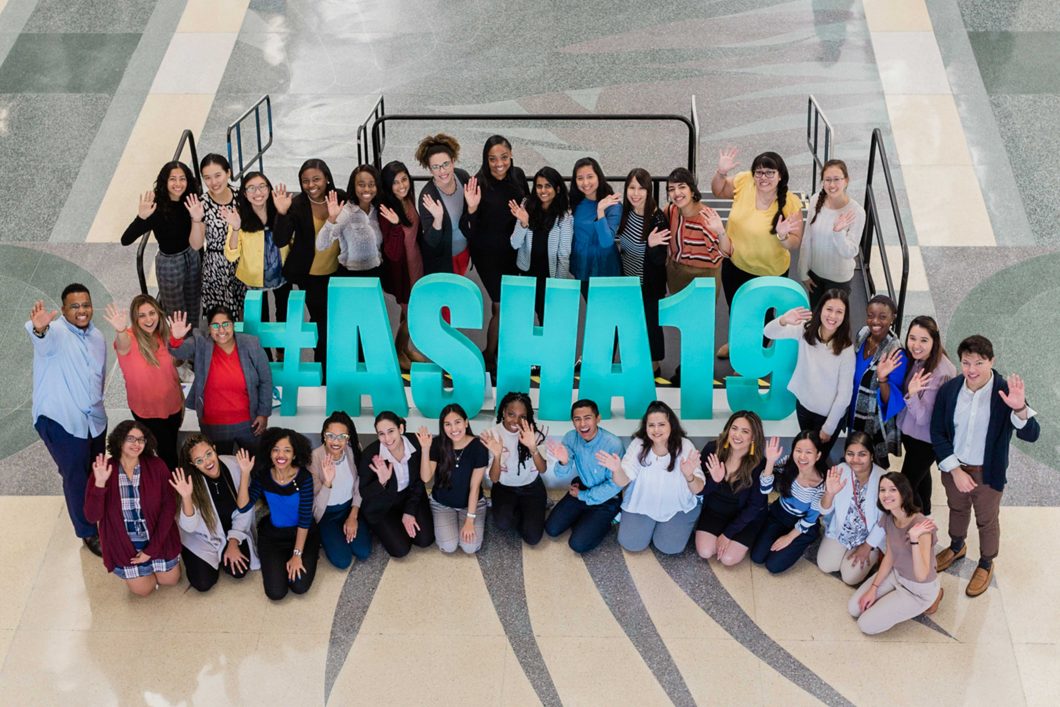Many students experience being the only one in their academic program who look like them, speak like them, or grew up in a different culture—including me.
ASHA’s MSLP Program is a safe space for students who have been historically underrepresented in the professions to gather and hone their leadership skills by:
- attending leadership seminars;
- meeting past ASHA presidents, MSLP alumni, and
top researchers and clinicians in the fields; - completing a group research project;
- learning about ASHA’s leadership opportunities
for young professionals; - and attending events—all at the annual ASHA
Convention.
I’m a proud member of the MSLP Class of 2019—a cohort of 40 students I’d never met before. This unique opportunity allowed us to be surrounded by other students and professionals of color, expand our knowledge of other cultures, learn from professionals outside of our fields, and work with other student leaders who have both similar and different leadership styles than our own.
Personally, it allowed me to better understand myself as a leader and further develop my leadership skills. But—I wondered—how will my MSLP experience impact my future as a speech-language pathologist, researcher, and professor?
To get a better idea of what to expect, I interviewed a couple of professionals and fellow MLSP-ers to see how participating in MSLP helped shape their careers . . .

Kia Johnson, PhD, CCC-SLP
NSSLHA’s National Advisor, ASHA Board of Directors member, NBASLH Board of Directors member, Associate Professor at the University of Houston, Director of the Stuttering Analysis Research Laboratory, and MSLP Class of 2006

Shauntelle Cannon, AuD, CCC-A
Research Audiologist at Boys Town National Research Hospital, PhD student at The Ohio State University, member of the Research Audiologist Information and Support Network, and MSLP Class of 2015
Why Did You Apply for MSLP?

Dr. Johnson: 14 years ago, I recall being “knee deep” in a doctoral program developing my research skills. But, based on my matriculation at that point, I also knew I wanted leadership to be a part of my professional future. That spring, I sat down to write an essay about leadership with the goal of securing a seat on ASHA’s MSLP. I identified my leadership goals and what I hoped to gain from being a part of this program, including to “be an outstanding teacher-scholar with the ability to be a great leader to others” and “be a leader amongst my peers and colleagues in an academic and professional setting.” I can undoubtedly say that the foundation established through my participation in the MSLP Class of 2006 helped propel me towards achieving my goals as a professional.

Dr. Cannon: The first year of my AuD program, I attended an MSLP presentation at the annual National Black Association for Speech-Language and Hearing (NBASLH) convention. At the time, I was unaware of how large the disparity was for minority professionals in the field of speech and hearing sciences. I realized MSLP would give me an avenue to work towards closing the gap, as the program itself contributes to and encourages the recruitment and retention of underrepresented groups in audiology and speech-language pathology. My 2015 cohort totaled 40 students. However, I was one of only five audiology students, which represents the contrast between audiology and speech-language professionals as a whole.
How has MSLP Changed the Trajectory of Your Career?

Dr. Johnson: Now, as a tenured associate professor and mentor to future clinicians at the undergraduate and graduate levels, researcher of stuttering, peer reviewer for journals or Convention topic committees, representative on my state SLP Advisory Council, Board of Directors Chair of NBASLH, and NSSLHA National Advisor/ASHA Board of Directors member—I can look back at my goals from my 2006 MSLP application essay and say, “Mission accomplished!”
It’s my leadership record as a professional and the records of countless MSLP alumni within the profession that serve as a true testament to the benefit and productivity of such an amazing program!

Dr. Cannon: MSLP provided me with the tools I needed to excel in my academics, hone my leadership skills, and create professional service initiatives. In collaboration with one of my mentors, I was awarded an NIH diversity supplement, allowing me to work as a research audiologist and foster my career in translational research. During my time as a research audiologist, I’ve presented my work at various clinical and research focused conferences, as well as been published in peer-reviewed journals. Most recently, I was accepted into a PhD program at The Ohio State University where I intend to expand my research interests in vestibular sciences. Additionally, I was an inaugural cohort member of ASHA’s Early Career Professionals program for audiologists and a member of the Research Audiologist Information and Support Network—a group that promotes careers in research audiology.
What’s the Greatest Benefit You’ve Experienced as an MSLP Alumni?

Dr. Johnson: Arguably, the greatest benefit occurred after completing the program. Being an MSLP alumna places you within an elite group of leaders who not only have the continued support of the MSLP team, but the influential support of fellow MSLP alumni from across the nation. It’s truly a professional support system like no other. You can count on an MSLP alumni to share leadership experiences, celebrate accomplishments, and support you through leadership challenges. Since 2006, I’ve consistently increased my leadership presence within our profession and ASHA. And I’ve had the unwavering support of the MSLP staff and my peers every step of the way.

Dr. Cannon: The most profound, individual experience I gained from a part of MSLP was being in a professional arena where I didn’t feel like a minority—for the first and only time in my life. That experience made me no longer afraid to use my voice. It inspired me to find my voice as an audiologist and advocate for diversity, equity, and inclusion of people of color within the field of speech and hearing science, as well as launched my involvement in various service and volunteer initiatives where I could inspire others.
Excited for the Future
It’s only been about 4 months since I participated in last year’s MSLP, but it’s already changed my life by opening doors to [or given me the confidence to apply for] opportunities I wouldn’t have had otherwise, like receiving the Illinois Speech-Language-Hearing Association’s (ISHA) John Consalvi Service Scholarship for my community service commitment.
MSLP provided me with more confidence in my leadership skills and an understanding on how to adapt to challenges. I’ve learned you don’t need a title to lead. And I’m now wise enough to know when to lead and when to step back and follow—both are aspects of a great leader.
I’m inspired by all of the former MSLP-ers, like Dr. Johnson and Dr. Cannon, who have held leadership positions in their communities, state associations, ASHA, NBASLH, and other organizations. I’m excited to see what opportunities—whether local, state, or national—present themselves to me because of my MSLP experience!
MSLP definitely had a positive impact on me as a future professional. If you’re eligible, I hope you consider applying and taking advantage of this incredible opportunity too. But hurry—applications are due April 29!

